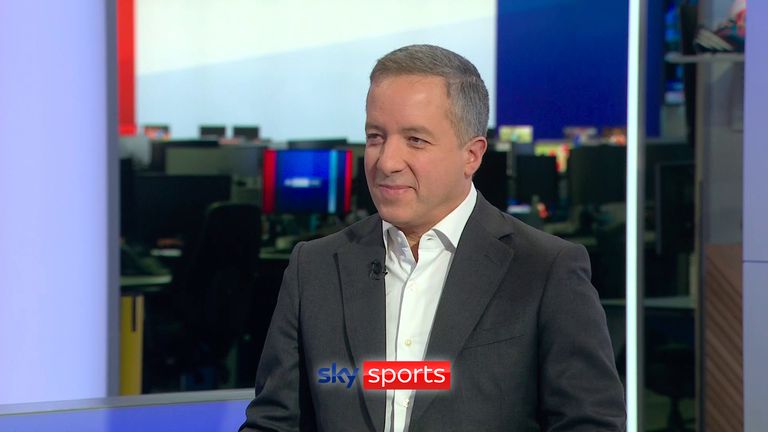Since 2002 the transfer window has been an integral, at times even overbearing, part of British football.
From some time in early June to August 31, and for the entire month of January, clubs can finally do their business at will. Star players can finally hope they get their big move, fringe players can finally look to get some game-time elsewhere – and managers can finally find out whether their chairmen will loosen the purse strings after all.
Both windows have remained largely untouched for more than two decades, but now a third date has popped up on the transfer calendar: June 30.
Totally aside from the transfer window itself, this date marks the end of the accounting period for each league season.
That’s the date clubs must have their finances sufficiently in order to pass the Premier League and Championship’s respective Profit and Sustainability Rules (PSR) checks – with Everton and Nottingham Forest’s points deductions two recent examples of what happens when they don’t.
Those rules have begun to bite over the last few years creating an array of suddenly more pressing issues for CEOs, managers and, indirectly, players in the process.
So let’s talk you through the big issues surrounding English football’s ‘proxy’ deadline day…
Why is June 30 so important for clubs?
Under current spending rules – which are set to change at some point in the near future – clubs are allowed to make certain losses across a three-year period, which are calculated up to the end of June 30 of any given year.
In the Premier League, this amounts to £105m. In the Championship, it’s much less at £39m.
League One and League Two operate under a different set of rules, which include a wage cap and spending limit tied to the amount of money they make every year.
The Premier League and Championship ‘losses’ don’t include everything. The upkeep of a stadium or building a new one, spending on the academy or associated women’s team and anything which the leagues define as “for the general interest of the club and football” all get left out.
There can be grey areas here, but if clubs believe they are in danger of breaching the rules, then they need to do something about it before July 1 rolls around. And the quickest of those fixes normally involves selling players.
Who’s at risk this summer?
Sky Sports News understands six clubs – Everton, Nottm Forest, Newcastle, Chelsea, Aston Villa and Leicester, face having to sell players before the end of June in order to comply with PSR
Leicester already face a potential points deduction for breaking PSR rules up to the end of the 2022/23 season, when they were relegated to the Championship.
All six clubs are under pressure to sell players before the June 30 deadline to meet the £105m allowable loss.
Will clubs be forced to sell players on the cheap?
There is certainly a chance of this. Not only do clubs worried about breaching PSR have a limited time to improve their financial situation, but the clubs who want to buy their players know this too.
To drive a harder bargain, clubs are known to keep tabs on one another’s finances to get an idea of how much pressure selling clubs are under, especially at this time of year.
Everton’s director of football Kevin Thelwell has already publicly admitted players “will be sold” this summer, and asked for “patience and understanding” from the club’s fans as they look to improve their financial footing.
“Those clubs who have players on very lucrative contracts will face some challenging times,” football finance expert Kieran Maguire told the Transfer Talk podcast. “Who’s going to be willing to match the wages that these players are on?
“And from a player’s perspective, they want to know why they should take a pay cut just to help the club they’re currently playing for to comply with PSR.”
Why are homegrown players more likely to be sold?
For accounting purposes, selling an academy product is a much simpler way for a club to make a profit – and therefore reduce losses – than selling a player they had previously bought.
This is because when a player is sold, the ‘profit’ they bring in is offset against what is called their ‘book value’. This involves a process called amortisation, which is discussed in further detail here.
In simple terms, it means their calculated ‘value’, which is relative to their original purchase price and how much of their contract is left, taken off the amount they are sold for – reducing any financial bonus for the selling club.
For instance, a player who was bought for £50m on a five-year contract decreases in value by £10m every season under amortisation.
If they were sold after three years, their book value would be £20m – and this would be deducted from whatever their sale price was. So if they were sold for £30m, they could only bank a profit of £10m.
A player who has come through the club’s academy would not have the same issue. The profit in that deal would be recorded as the full £30m.
Could clubs just take a points deduction instead of complying?
This has been mooted outside of the game and probably thought about in some Premier League boardrooms but it is, in no uncertain terms, a risky strategy.
Say you have a player who you believe is worth five or six points to you in a season, a star man. Selling him would bring you in line with PSR limits for one season, but you have lost your best player for good. It could be tempting.
However, as we’ve seen in the season which has just finished, predicting what sanctions clubs will face for PSR breaches is difficult to predict.
For instance, Nottm Forest were docked four points earlier this season for a PSR breach of £34.5m, while Everton’s first charge saw them penalised with a 10-point deduction – albeit later reduced to six – for overspending by £16.6m, less than half that figure.
“It’s a risk to take,” Maguire told Transfer Talk. “What happens if the player [being kept] has a loss of form, and when you’re starting the season on minus six points you’re already going into the season with a very different mindset.
“It could be that the player themselves becomes unsettled, which impacts on their performance. We fall into a trap as fans of viewing players as commodities to be bought and sold.
“I’ve not seen anyone within the industry itself say they’re willing to take that risk, but I am certain everyone is doing their sums.
“Some clubs might take the view a player is so good he’s worth a minimum of eight points per season, and it might be the worth of taking a six-point deduction.”
Separately, part of Forest’s defence against their deduction centred around the sale of Brennan Johnson, who they said could have left the club before last summer’s June 30 cut-off.
Forest’s argument suggested they could have complied with PSR, but claimed the one offer they received for him before the deadline, from Atletico Madrid, was below his market value.
They justified their decision by referencing the £47.5m they received from Tottenham when they eventually sold him on September 1 as “golden mitigation”.
This was rejected by the Premier League panel, but that does not mean other clubs will not try similar tactics in the future.




